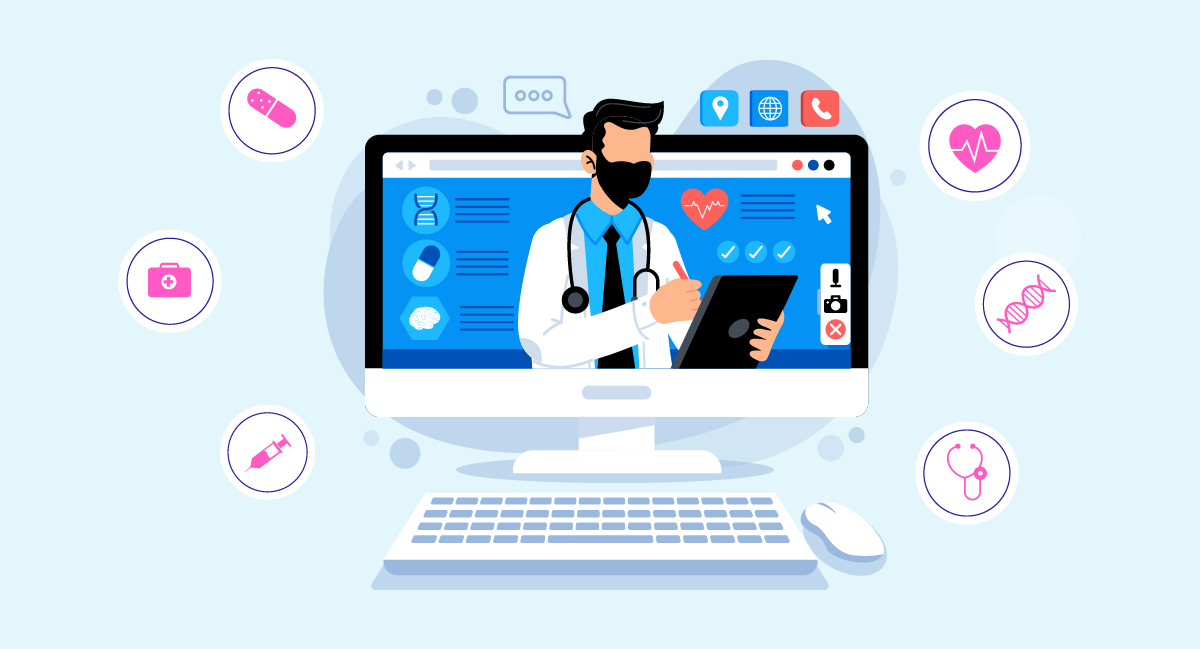In the fast-paced world of healthcare, where every second counts and every decision can change a life, a silent partner is working behind the scenes with software. While doctors, nurses, and medical staff are the visible heroes of the healthcare system, an unseen digital hero is quietly reshaping how hospitals operate, save time, and deliver care with unprecedented accuracy. From managing patient data to automating workflows and improving diagnostics, modern healthcare software is the real hero in your hospital.
The Hidden Backbone of Modern Healthcare
Hospitals today are far more than physical spaces for treatment they are complex ecosystems of information. Every patient visit generates massive amounts of data: medical histories, test results, prescriptions, treatment plans, and billing details. Managing all this manually is not only inefficient but risky.
That’s where Hospital Management Software Pakistan (HMS) steps in. Acting as the digital backbone of the entire system, it connects departments, automates administrative tasks, and ensures that vital information is accessible in real time. From admissions to discharge, every process becomes streamlined, accurate, and transparent.
For instance, a patient’s blood test results can automatically update in the doctor’s dashboard, enabling faster decisions and eliminating manual communication delays. In emergencies, that speed can make all the difference.
How Software Is Improving Patient Care
It’s easy to assume that technology in hospitals mainly helps administrators or doctors. But in reality, the biggest beneficiary is the patient. When hospitals use the right software, patients experience shorter wait times, fewer errors, and more personalized care.
- Faster Diagnostics:
With integrated lab management systems, test results are processed, verified, and shared more quickly. No more manual report handovers or misplaced files, everything is digitally tracked. - Fewer Errors:
Prescription errors, duplicate tests, and missed follow-ups can have serious consequences. Software reduces human error by ensuring that data entry, drug interactions, and dosage calculations are cross-checked automatically. - Personalized Treatment:
With electronic health records (EHRs), doctors can access a patient’s complete medical history in seconds. This allows for more precise diagnoses and treatments tailored to the patient’s unique needs.
In essence, healthcare software doesn’t just make hospitals efficient it makes care safer and smarter.
The Rise of AI and Predictive Analytics
One of the most exciting shifts in modern healthcare software is the integration of Artificial Intelligence (AI) and predictive analytics. Hospitals can now analyze massive data sets to predict outbreaks, manage resources, and even detect early signs of disease.
Imagine a system that warns doctors about potential sepsis before symptoms become visible, or predicts which patients are most at risk of complications post-surgery. AI-driven healthcare platforms can do exactly that turning raw data into actionable insights.
Some hospitals are already using predictive analytics to forecast patient inflows, helping them allocate beds, staff, and resources more effectively. It’s not just about reacting to emergencies, it’s about anticipating them.
Streamlining Hospital Operations
Beyond patient care, hospital software is transforming the way facilities function daily. Administrative workloads that once took hours now happen in seconds.
- Billing and Accounting: Automated systems ensure transparency, accuracy, and compliance with financial regulations.
- Inventory Management: From surgical instruments to medications, software tracks supplies in real time, preventing shortages or waste.
- Scheduling and Staffing: Algorithms can optimize staff shifts and ensure specialists are available when needed, reducing burnout and inefficiency.
This level of automation doesn’t replace human expertise it enhances it. By removing repetitive and time-consuming tasks, hospital staff can focus more on patient care and less on paperwork.
Enhancing Data Security and Compliance
In the digital age, healthcare data security is paramount. Hospitals store highly sensitive personal and medical information that must be protected at all costs.
Modern hospital software includes robust data encryption, access control, and audit trails to ensure compliance with regulations such as HIPAA or GDPR. With cyber threats becoming increasingly sophisticated, secure software acts as a digital guardian protecting both patients and institutions from breaches and data loss.
Moreover, cloud-based systems offer real-time data backup and recovery options, ensuring that even in case of system failure or disaster, critical information remains safe and accessible.
The Human Touch Behind the Code
It’s important to remember that this software isn’t replacing doctors or nurses it’s empowering them. The goal isn’t to turn hospitals into machines but to give healthcare professionals the digital tools they need to focus on what matters most: saving lives.
A well-implemented hospital software system can reduce staff burnout, minimize errors, and create a more collaborative working environment. When technology takes care of the data, humans can take care of each other.
The real hero, then, isn’t just the software itself but how it enables humans to be even better at being human.
What the Future Holds
The future of hospital software looks even more promising. We’re entering an era where Internet of Things (IoT) devices, wearable health trackers, and telemedicine platforms will all be interconnected through centralized hospital systems. This means continuous monitoring, remote consultations, and faster emergency responses.
Imagine a patient’s smartwatch detecting abnormal heart activity and instantly alerting the nearest hospital where software automatically preps the cardiology team for action. It’s not science fiction anymore; it’s the direction healthcare is heading.
Final Thoughts
While the spotlight often shines on doctors and medical breakthroughs, it’s time we acknowledge the silent digital heroes behind hospital walls. The software systems running hospitals today are not just tools; they are life-saving networks that connect people, processes, and data seamlessly.
Whether it’s preventing errors, predicting risks, or simply giving medical professionals more time to care this software might indeed be the real hero in your hospital.
As technology continues to evolve, the hospitals that embrace it will not just heal faster they’ll heal smarter. And that’s a future worth investing in.
